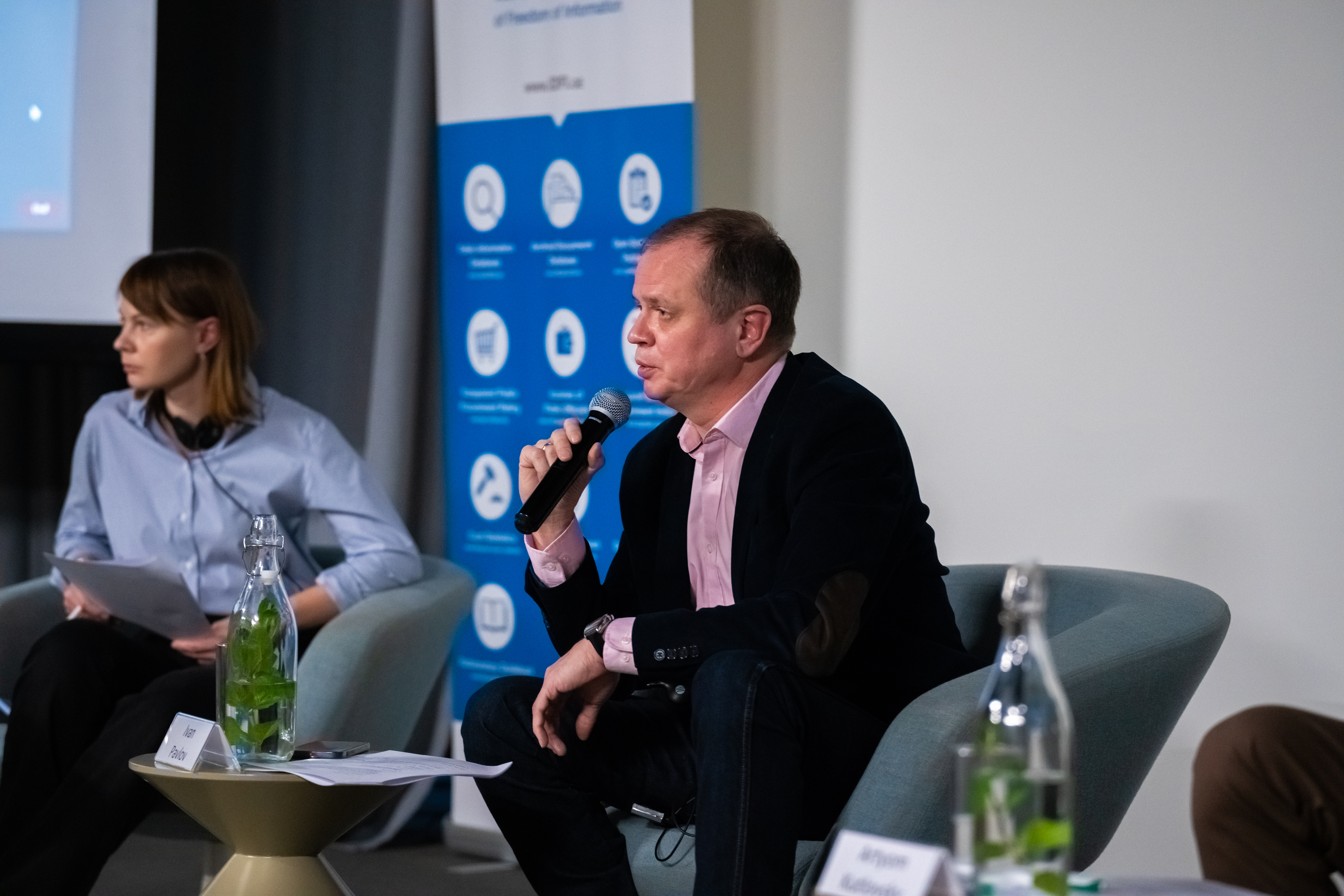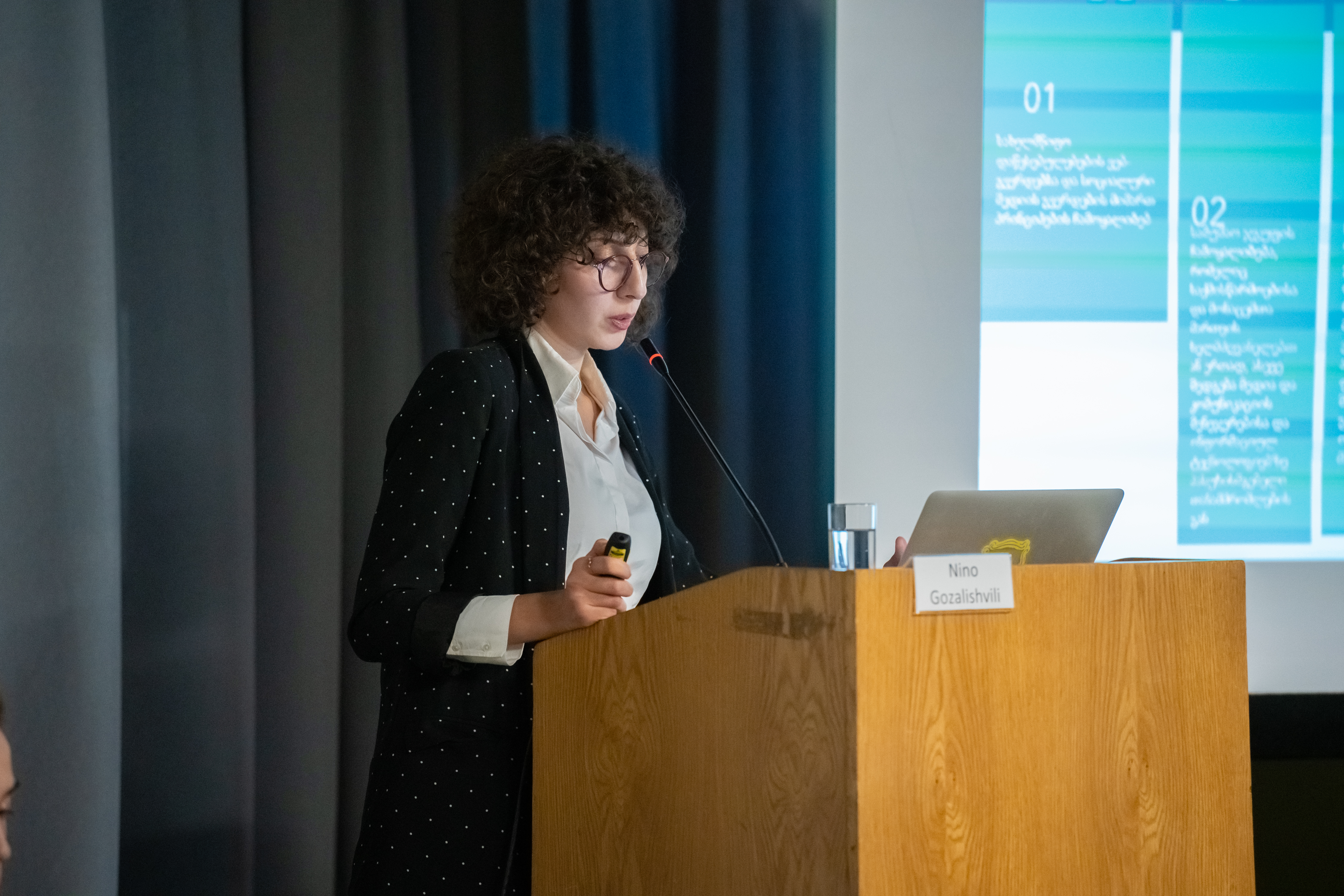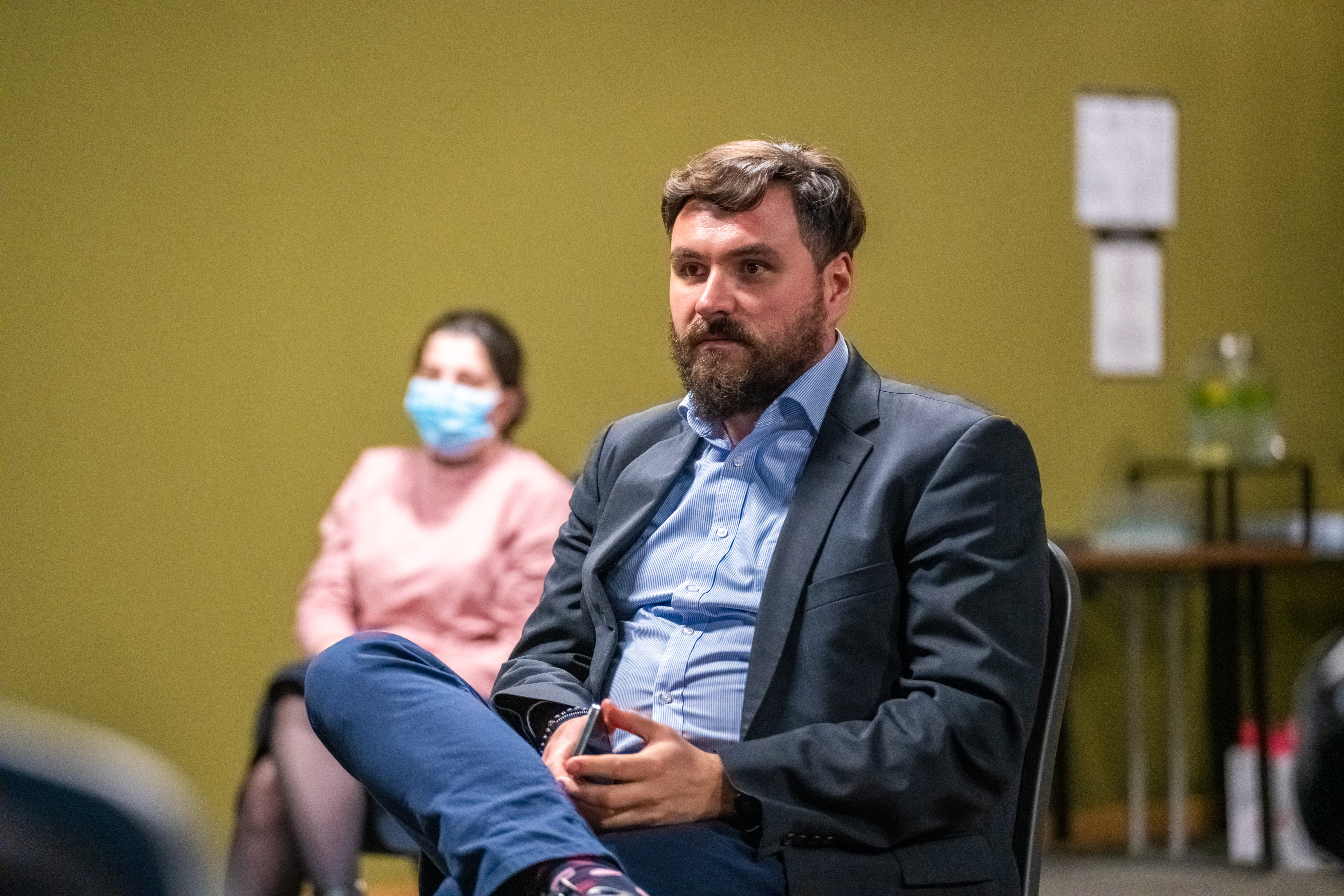


On December 16, 2021, the Institute for Development of Freedom of Information (IDFI) with the financial support of the Swedish International Development Cooperation Agency (Sida) held the 3rd International Conference: "Openness of the State Archives and Memory Studies". The event was hybrid, attendance was also possible online, via the ZOOM platform.

The conference focused on transformations and challenges in the field of archives and archival openness. Issues related to the COVID-19 pandemic and its impact were discussed, as well as the relevant legislation and prospects for popularizing archival research.
The international conference was attended by historians, archivists, lawyers, well-known specialists in history and memory studies, who have been working for years on the most important issues related to historiography and memory research.
The conference was opened by Levan Avalishvili, Co-Founder and Programs Director of the Institute for Development of Freedom of Information. He underlined the effect of the pandemic on the openness of archives and stressed the importance of discussing the matter. He spoke about the accessibility of archives as one of the most important factors in understanding the past and democratic development. IDFI Programs Director noted that the openness of archives is affecting many important issues, including the process of critically rethinking history.
The conference consisted of three broad discussion panels.
Chair of the first panel was Dr. Alexander Morrison, Fellow & Tutor in History, New College, University of Oxford. The panel members- Sandor Horvath (Historian, Head of Department of Contemporary History, Institute of History, Research Centre for the Humanities, Budapest), Archie Blissett (DPhil Student, Keble College, University of Oxford), Deanna Soloninka (PhD Candidate, the University of Edinburgh), Oliver Reisner (Jean Monnet Professor in European & Caucasian Studies at Ilia State University) and Yuan Gao (PhD Candidate, Georgetown University)- discussed archives during the Covid-19 pandemic: Challenges and lessons for the post-pandemic future.

The recent research conducted by the Institute for Development of Freedom of Information (IDFI) - “Modern archival materials in state institutions since Georgia's independence: What we know about their location, content, access to them and archives policy.” was also presented by the IDFI Researcher Nino Gozalishvili. Nino spoke about the state of archives since 1991. Her talk was focused on the issues of accountability of state institutions and the importance of raising public oversight over the governing process. Particular focus was drawn on the non-legislative barriers for citizens to access archival materials and on the importance of archiving electronically created materials. Nino reviewed the legislative framework and noted the need for constant communication, exchange of documents between the state departments and the National Archives.
The second panel was led by Ivan Pavlov, Attorney, Lead of Ex Team 29. Participants of the panel – Daria Sukhikh (Lawyer, Ex Team 29), Artyom Kutlovsky (Lawyer, Ex Team 29), Giorgi Davituri (Lawyer, Media and Freedom of Expression Direction Head of the IDFI) and Anna Oliinyk (Pursuing a Master's degree in Russian and Post-Soviet Politics at School of Slavonic and East European Studies, University College London) – discussed openness and regulations of national and departmental archives, faulty practices and good examples. Giorgi Davituri spoke about the faulty use of the "Personal Data Protection Law" by archival institutions, which leaves a very large array of documents unavailable to researchers.
The third panel was chaired by Jeremy Smith, Professor, College of Humanities and Social Sciences, Zayed University. Participants Sergey Prudovskiy (Archival Researcher, Memorial Society), Vlatka (Lemić, ICARUS / ICARUS Hrvatska), Anton Vatcharadze (Historian, IDFI) and Timothy Blauvelt (Professor of Soviet and Post-Soviet Studies, Ilia State University) talked about the prospects of popularizing archival research.
Anton Vacharadze, Head of IDFI Memory and Disinformation Studies, discussed how to teach archival research to future journalists. He spoke about the University course of IDFI and the University of Georgia on Disinformation and Propaganda studies. The course provides participants with a thorough knowledge of disinformation research, hybrid warfare, disinformation and propaganda history, modern methods of combating disinformation.

The discussion was held in question-answer mode.
At the end of the event, participants unanimously stated that the aim of the project - to illustrate the specifics of the archival system of different countries and the obstacles that may be encountered during the COVID-19 pandemic - will greatly help them plan future archival research.
The conference unanimously adopted a statement in support of the International Memorial Society, which has been subjected to open political repression by the state in the Russian Federation. Trial for the liquidation of the society has been underway since November 11, 2021.
Finally, the conference participants agreed to continue advocating for the openness of archives in their countries.
Please find the agenda of the conference here
The photo gallery can be found here
The conference was organized with the financial support of the Swedish International Development Cooperation Agency (Sida).